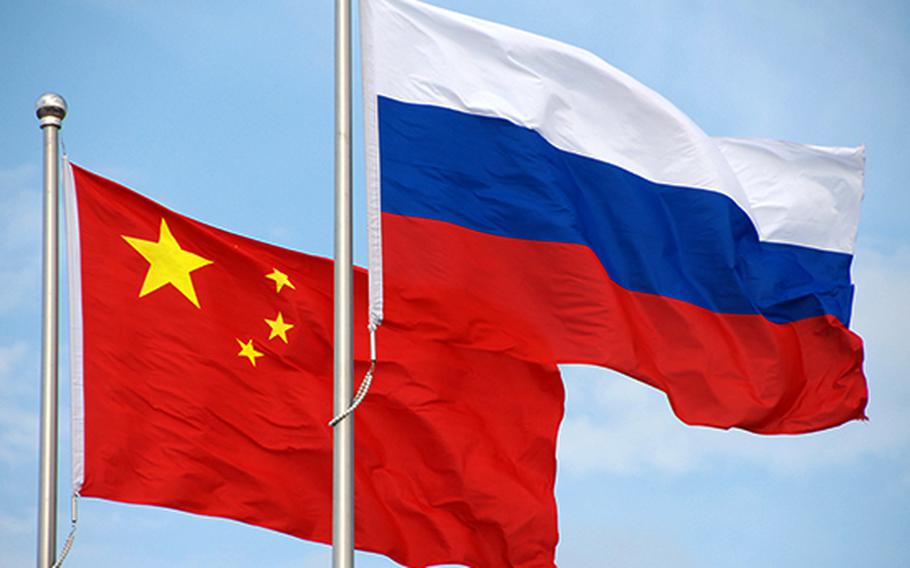Europe
Russia seeks military equipment and aid from China, U.S. officials say
The Washington Post March 13, 2022
Russia has turned to China for military equipment and aid in the weeks since it began its invasion of Ukraine, U.S. officials familiar with the matter told The Washington Post.
The officials, who spoke on the condition of anonymity because of the sensitivity of the subject, did not describe what kind of weaponry had been requested, or whether they know how China responded.
The development comes as White House national security adviser Jake Sullivan plans to travel to Rome on Monday to meet with his Chinese counterpart, Yang Jiechi.
"We are communicating directly, privately to Beijing, that there will absolutely be consequences for large-scale sanctions, evasion efforts or support to Russia to backfill them," Sullivan told CNN.
A spokesman for the Chinese Embassy in Washington, Liu Pengyu, said he was not aware of any such request for assistance. "I've never heard of that," he said in an email to The Washington Post.
"China is deeply concerned and grieved on [the] Ukraine situation," he said. "We support and encourage all efforts that are conducive to a peaceful settlement of the crisis. The high priority now is to prevent the tense situation from escalating or even getting out of control."
Russian Finance Minister Anton Siluanov, speaking Sunday in a television interview, noted that part of Moscow's gold and foreign exchange reserves were in Chinese currency, Reuters reported. "And we see what pressure is being exerted by Western countries on China in order to limit mutual trade."
"But I think that our partnership with China will still allow us to maintain the cooperation that we have achieved, and not only maintain, but also increase it in an environment where Western markets are closing."
While Sullivan, who spoke on several Sunday talk shows, focused his remarks on economic aid and sanctions evasion, the officials said that Russia is running low on certain types of weapons. They declined to specify which kinds.
"If Beijing is offering any type of military assistance to aid Moscow's war in Ukraine, the spillover effects on U.S.-China policy could be vast," said Eric Sayers, a former adviser to the U.S. Indo Pacific Command and now senior vice president at Beacon Global Strategies.
"It would abruptly end debate about pathways to working with Beijing. More importantly, it would push Washington to accelerate retaliatory and decoupling actions toward China, and create new pressure on companies now doing business in China," Sayers said.
China buys certain weapons from Russia, especially advanced fighter aircraft and surface-to-air missile systems, said Taylor Fravel, a political science professor at the Massachusetts Institute of Technology who specializes in Chinese defense.
"As far as I know, China does not sell any weapons systems to Russia," Fravel said. "In other words, Russia has enabled China's military modernization but China so far has not contributed much to the development of Russia's armed forces, apart from the profits of Russian weapons sales, which can be reinvested to improve Russian capabilities."
China has sought to balance political support for Russia, including blaming the United States and NATO expansion for the war, with upholding principles such as sovereignty and territorial integrity, Fravel noted. So if China provides "direct material support" to Russia's war effort, he said, "it would be a watershed moment."
Michael Kofman, director of the Russia studies program at the Virginia-based nonprofit analysis group CNA, said Russia's request, of which he had no independent knowledge, appears to reflect the fact that "this war is costly and over time will prove exhausting for the Russian military."
On the day Russian troops entered Ukraine, a spokesperson for China's Foreign Ministry said Beijing would not send arms to Russia, taking a jab at U.S. efforts to muster military support for Ukraine. "There's a difference in methods between China and the U.S. on this issue. . . . I think Russia, as a powerful country, does not need China or other countries to provide it with weapons," Hua Chunying said at a news briefing.
Moscow's apparent turn to Beijing comes as senior U.S. intelligence officials last week described to Congress how Russia and China were more aligned than at any point since the mid-1950s.
"It continues to be the case that they are getting closer together," Director of National Intelligence Avril Haines said on Tuesday, testifying before the House Intelligence Committee. "I think there's a limit to which it will go, but nevertheless, that remains a concern. In terms of the impact of the current crisis, I'd say that it's not yet clear to me exactly how it will affect the trajectory of their relationship."
During the same panel, CIA Director William Burns noted that the China-Russia partnership has strengthened in recent years. He added, however, that he thought Chinese President Xi Jinping "and the Chinese leadership are a little bit unsettled by what they're seeing in Ukraine."
China has also been cautiously watching how close the European Union and United States have been in lockstep on the Ukraine crisis. Chinese officials have "valued their relationship with Europe and valued what they believe to be their capacity to drive wedges between us and the Europeans," Burns said.
- - -
The Washington Post's Michael Birnbaum contributed to this report.

The flags of China and Russia. (Wikimedia Commons)